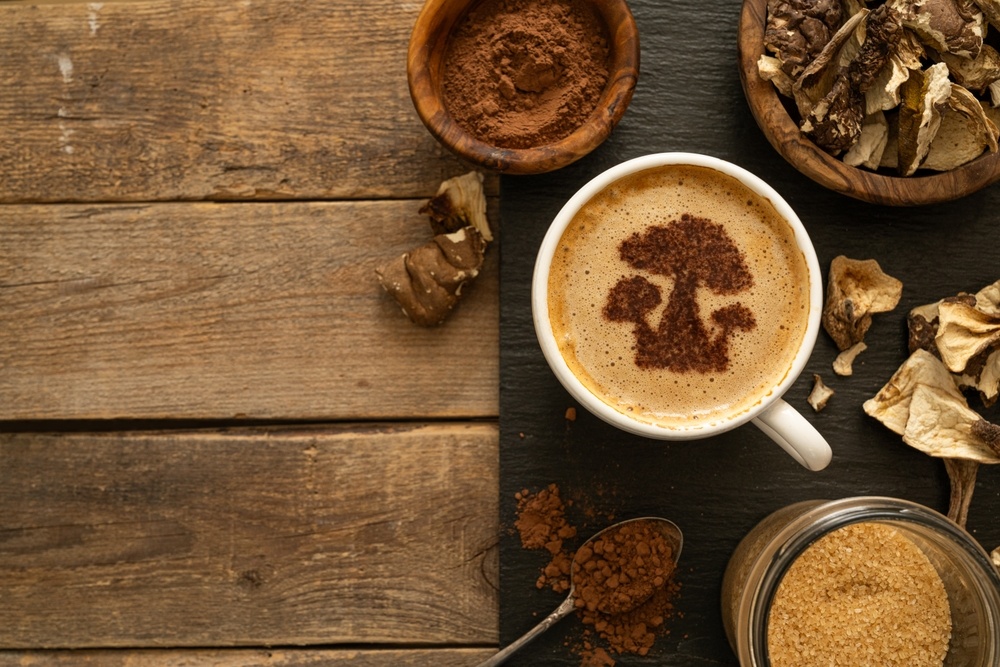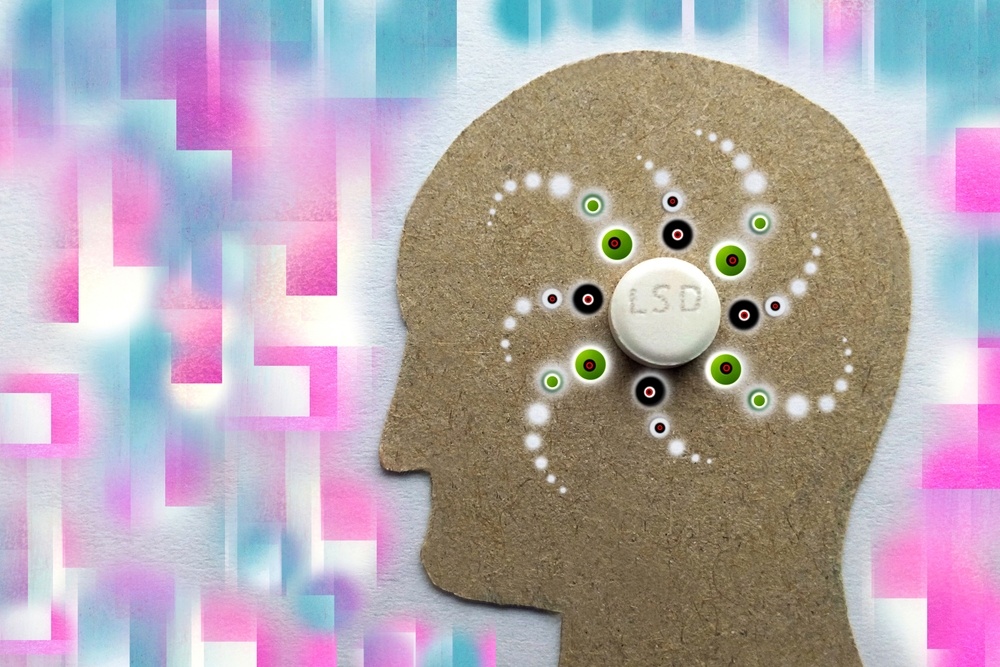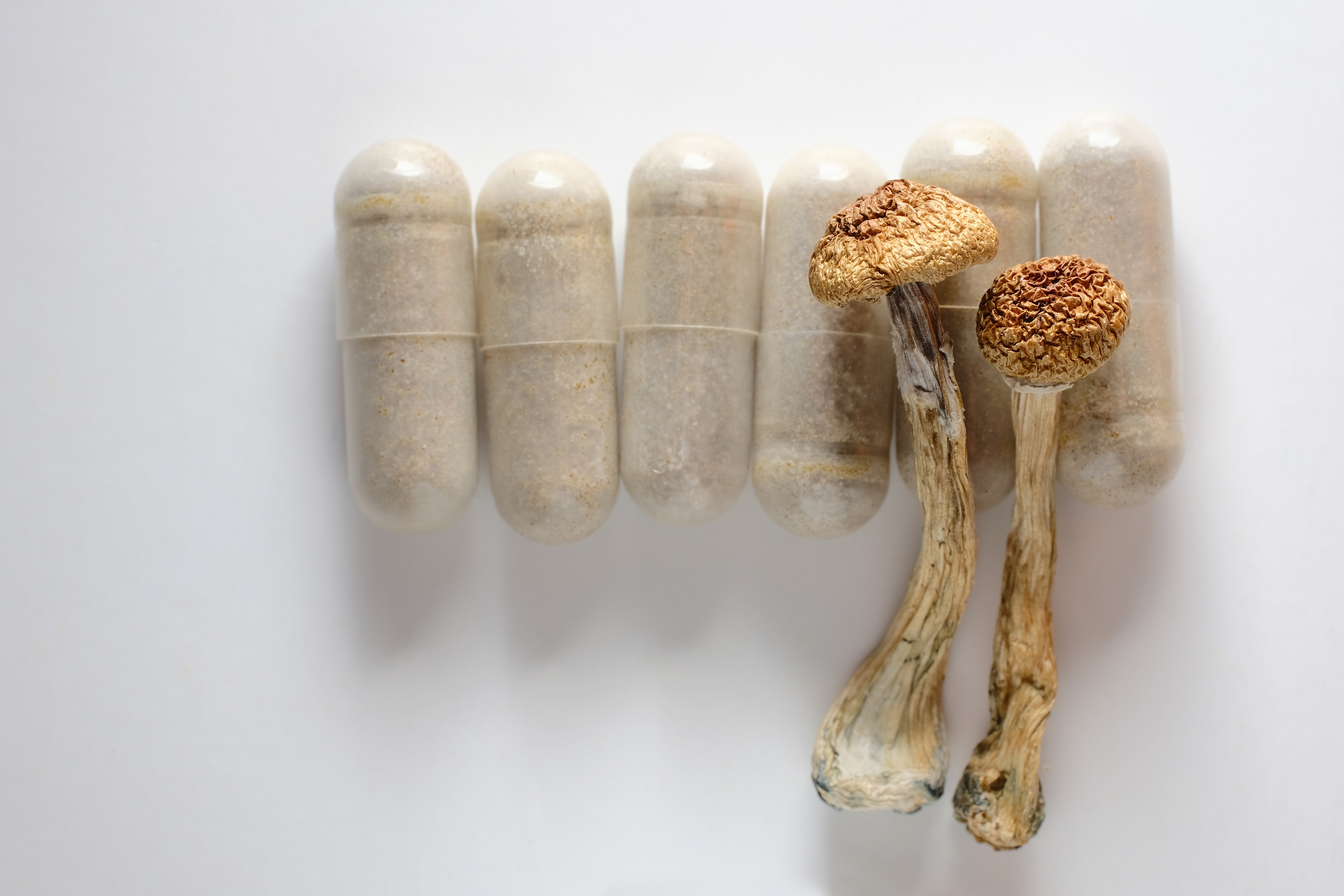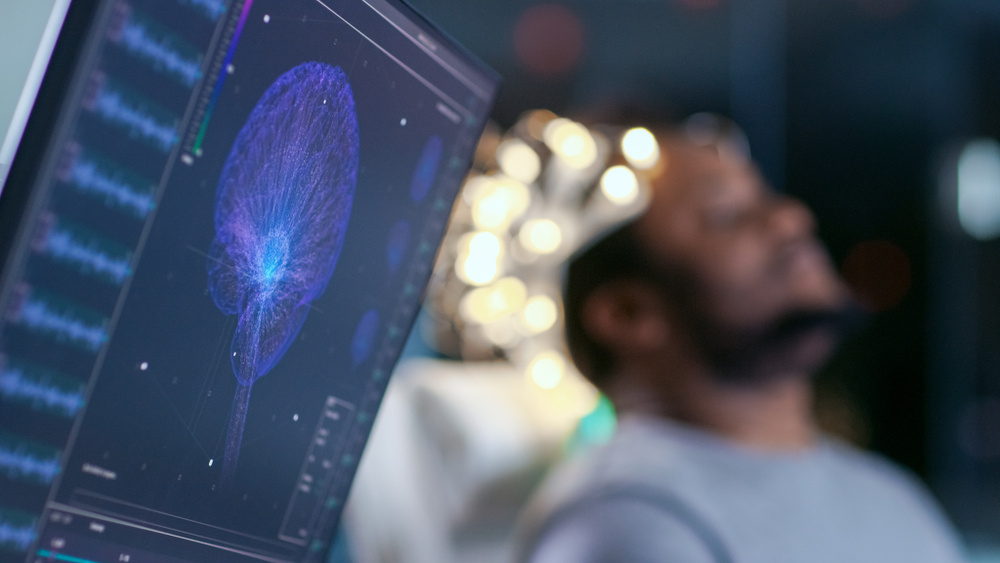One of the bigger trends in coffee lately is mushroom coffee - which is exactly what it sounds like. A cup of joe, with mushroom extract infused into the brew.
More and more cafes have been adding mushroom coffee to the menu, while touting numerous potential health benefits to justify the higher price for a cup. It's even starting to appear in home coffee products, such as pods. But is it worth it? And are there studies that verify any benefits of mushroom coffee?
Let's take a look.
What Is Mushroom Coffee?
First, one thing should be made clear. The mushroom coffee you'll find in shops is almost certainly not made with psychedelic mushrooms. You're not going tripping.
(With one exception; we'll get to that in a moment.)
Instead, it's made with medicinal mushrooms, typically including:
-
Reishi
-
Cordyceps
-
Turkey tail
-
Chaga
-
Lion’s mane
-
King trumpet
These are all species of mushrooms which have been noted over the years for their potential health benefits. Many have made their way into more alternative medicinal systems, such as Traditional Chinese Medicine, where they're often brewed into teas. So, in theory, brewing them into coffee should produce roughly the same results.
The typical process for making mushroom coffee is to simply dry out the medicinal mushrooms, grind them into a powder, and then sprinkle that into the coffee grounds before they're brewed. The result is a cup of java which still mostly tastes like coffee, but has a bit of an 'earthy' undertone to it. Still, few people complain about the flavor.
The Pros and Cons of Mushroom Coffee
Pros
Proponents and creators of mushroom coffee cite a wide range of health benefits, including:
- Reduced stress
- Better sleep
- Immune system boosts
- Improved energy levels
- Improved memory
- Inflammation reduction
- Mild pain relief
These claims are all derived from health benefits associated with the mushrooms in use. Some of these are verifiable. Medicinal mushrooms can act as antioxidants, which have health-boosting properties as well as potentially slowing aging. Some mushroom species also been shown to have anti-inflammation properties - which would also improve pain relief for muscle sprains, for example.
Some of the other claims are a little more dubious. For example, we'd love to see someone demonstrate that mushroom coffee is better at improving energy levels than any other kind of caffeinated drink. Likewise, caffeine can definitely improve memory, but evidence for mushrooms doing so is weaker - although there is some evidence that Lion's Mane mushrooms can boost rodent brains.
On the topic, for those wondering how much caffeine is in mushroom coffee, it's typically a bit less than regular coffee. However, like regular coffee, the amount of caffeine can be controlled through choice of beans, amount, and the brewing process. So, mushroom coffee can basically have as much or as little caffeine as you want.
However, there's a big research elephant in the room here: all the health-related claims are based on studies of the mushrooms by themselves. To date, there have been no studies into mushroom coffee specifically. Right now, it's fundamentally unknown whether the beneficial compounds in medicinal mushrooms actually survive being turned into coffee. Along the same lines, doses can vary greatly between brands, so there's no telling if any particular brew has enough of a particular compound to be beneficial.
Cons
Most of the cons associated with mushroom coffee are the same as with any other coffee. Headaches, jitters, stomach aches, and soforth.
In addition, mushrooms can also cause digestive issues, and high enough doses can potentially damage the kidneys, or increase the instance of kidney stones. Mushroom allergies are another potential concern.
However, there do not seem to be any unique negative side effects associated with mushroom coffee specifically. (Keeping in mind the lack of direct research.) If you can handle mushrooms and you can handle coffee, mushroom coffee probably shouldn't cause any extra problems.
So at least mushroom coffee seems to be reasonably safe.
Can you make psychedelic mushroom coffee?
Can you? Yes.
Is it a good idea? That's up for debate.
There is, in fact, at least one product on the market which claims to be magic mushroom coffee, sold in a shop in Seattle - a city known for its lax drug laws. The creators of the brew claim to have developed a proprietary process for removing chitins, the nausea-inducing chemicals in psilocybin mushrooms. This allows them to infuse magic shrooms into their coffee without turning their shop into a vomitorium.
However, they only have enough psilocybin in the coffee to qualify as a microdose. That said, there is scientific evidence that microdosing shrooms may improve mood and mental health. So, from a limited standpoint, this could be a workable idea.
On the other hand, we're back to the basic problem of no one knowing for certain whether psychoactive compounds in mushrooms survive being turned into coffee. And studies involving microdosing are notorious for being complicated by placebo effects.
As for trying to go on a full trip with a cup of coffee? That's almost certainly a bad idea.
For starters, even getting enough psilocybin into a cup of coffee to accomplish that would be difficult. It would probably significantly change the flavor, and for the worse.
There's also the problem of the nausea-causing chitins. Cooking can eliminate them, but it's widely believed this reduces the effectiveness of psilocybin. If you're going to be sick after drinking the coffee, why bother making coffee at all? In addition, caffeine is also a diuretic and known to cause upset stomachs. The one-two punch of both caffeine and chitins at once could easily make the side effects of magic mushrooms worse, possibly even more dangerous.
Finally, people on mushrooms tend to get jittery and can tend towards paranoia - which would also be made worse by adding caffeine to the chemical stew.
Overall, we would not recommend trying to homebrew your own magic mushroom coffee.
Should you try mushroom coffee?
If you're interested, there's no real reason not to. It's more expensive than regular coffee, but assuming your body can tolerate both caffeine and mushrooms, there's little real risk. However just be aware that, currently, all its purported health benefits are entirely speculative.
So you might just be paying extra for a trendy cup of joe.





